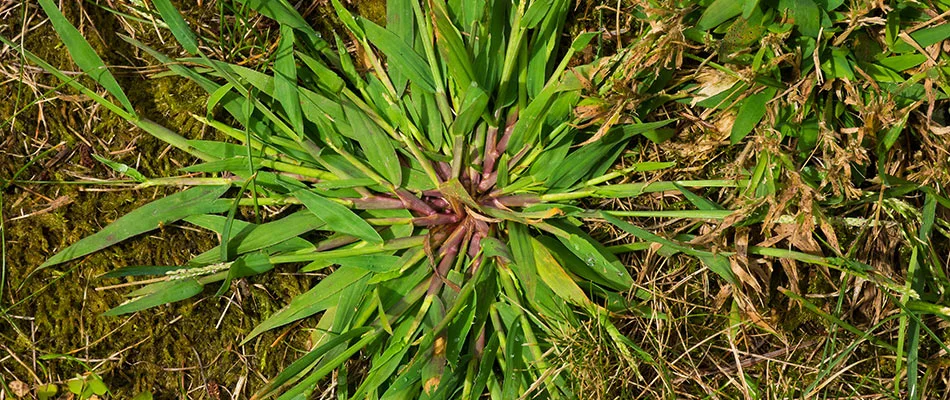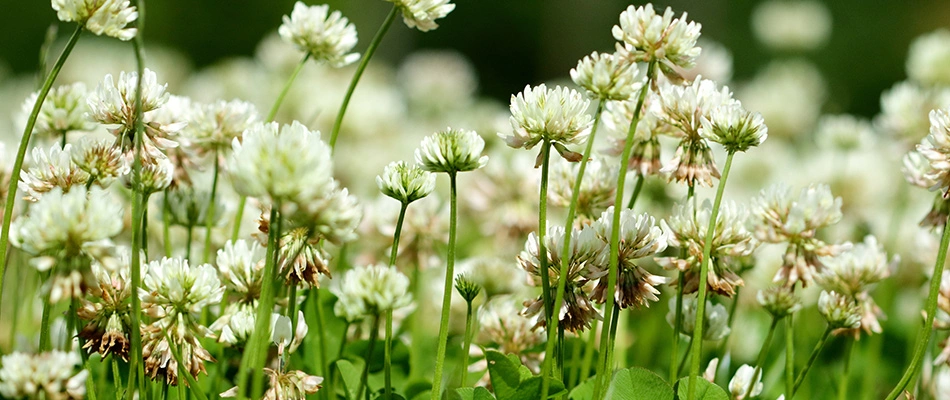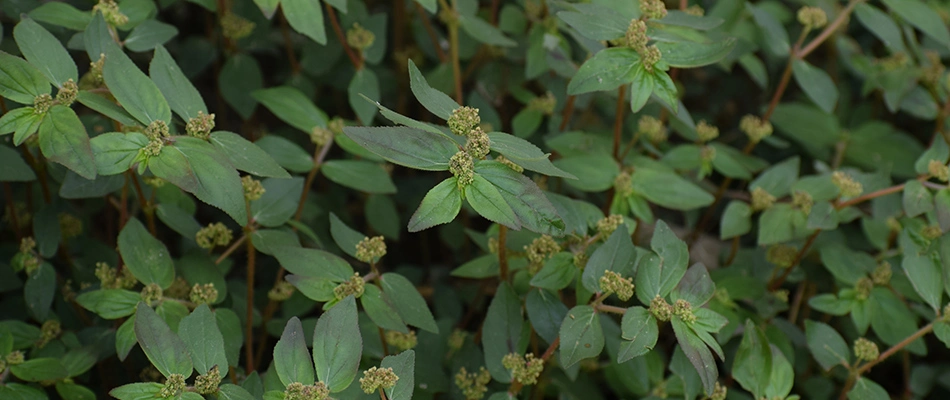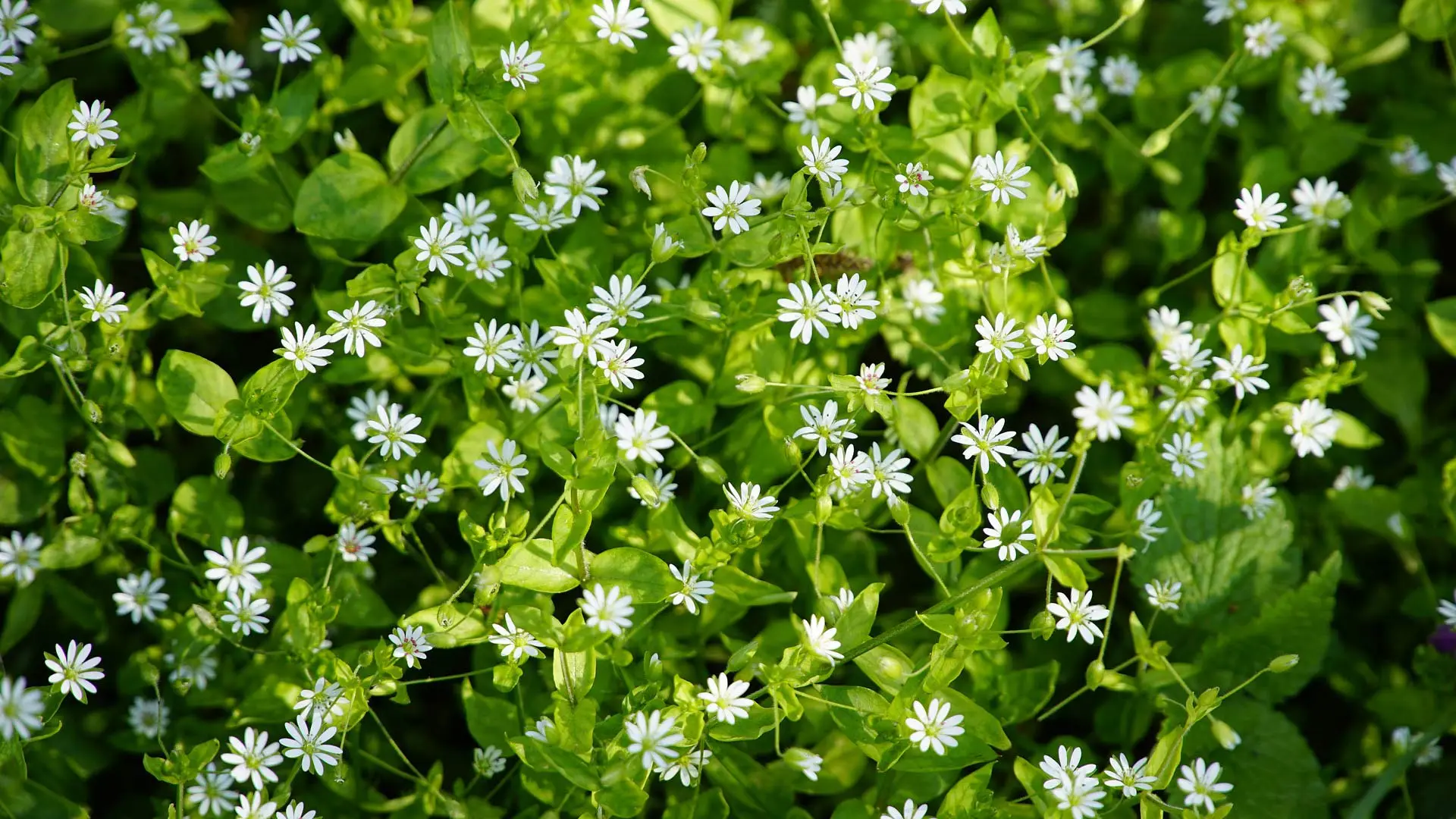Weeds are pesky nuisances that negatively impact your lawn. Not only do they tarnish the appearance of your grass, but they also compete with it for nutrients and other key resources. In North Carolina, there are 5 weeds that commonly invade lawns: crabgrass, nutsedge, clover, spurge, and chickweed. In this blog, you will learn about each of these common weeds, including what they look like and when they grow, so that you can identify them on your lawn. You will also learn how to eliminate them so they don't continue to cause issues.
1. Crabgrass

Crabgrass is a grassy weed that is classified as a summer annual. It has a flat sheath and smooth leaf blade that features a small point. As it grows, its sheaths shoot in various directions and resemble the legs of a crab. Crabgrass germinates in the spring when the temperatures are still cooler. If untreated, it can appear all over your lawn in warm summer months. One of the best ways to combat crabgrass is by applying pre-emergent weed control treatments in the early spring to prevent crabgrass from breaching the surface of your soil. If you don't apply pre-emergent treatments, then you can knock them out after they appear with a post-emergent herbicide.
2. Nutsedge

Nutsedge is a perennial weed that could be confused for grass because of its similar appearance. However, nutsedge features a triangular stem that sets it apart. This weed grows small seedheads that almost look spiky and are typically either yellow or purple in color. As these seedheads spread on your lawn, so does the nutsedge population. Nutsedge thrives in moist conditions and commonly appears in yards during the summer months. The most effective way to eradicate nutsedge is by applying weed control treatments to your grass in the late spring to early summer.
3. Clover

Clover is a small broadleaf weed that comes in a couple of different varieties in North Carolina: white clover and hop clover. White clover is a perennial weed with 3 oval leaflets and tiny, white flowers. Hop clover, on the other hand, is a winter annual weed that also features 3 oval leaflets but has small, yellow flowers. Both types of clover hug the ground and can be difficult to eliminate. However, they can be contained through pre-emergent and post-emergent herbicide treatments.
Mowing, fertilizing, and watering your lawn properly help it become thicker and less susceptible to weed development.
4. Spurge

Spurge is a broadleaf weed that is classified as a summer annual. It thrives in warm weather and grows in a prostrate position on your lawn, with its maroon stems branching out in all directions. Spurge has diminutive oval leaves with mildly serrated edges and flowers that are pink and white. You can combat spurge by applying pre-emergent herbicide treatments in the late spring to early summer and post-emergent herbicide treatments in the mid-to-late summer if they pop up on your turf.
5. Chickweed

Chickweed is a broadleaf weed that is classified as a winter annual. It prefers cooler temperatures and, similar to spurge, grows along the ground in a prostrate position. Chickweed has oval leaflets with smooth edges and pointed tips, along with tiny, white flowers. As it develops, chickweed grows in clusters that can overtake sections of your lawn. You can eliminate chickweed from your grass using both pre- and post-emergent herbicide treatments.
Call today to schedule our professional weed control service!
Are you tired of trying to fight weeds on your own? If so, then don't fight alone any longer. Instead, take advantage of our professional weed control service! We offer our weed control treatments to residential, commercial, and HOA properties in Greensboro, Winston-Salem, Summerfield, and nearby cities in North Carolina. Our pre-emergent and post-emergent treatments target many of the most common weeds in the Tar Heel State, including crabgrass, nutsedge, clover, spurge, and chickweed. We offer weed control as part of our full-service landscape maintenance program, which also includes fertilization, lawn mowing, aeration, and overseeding. If you're ready to get started, call us today at (336) 396-9191 to schedule!

